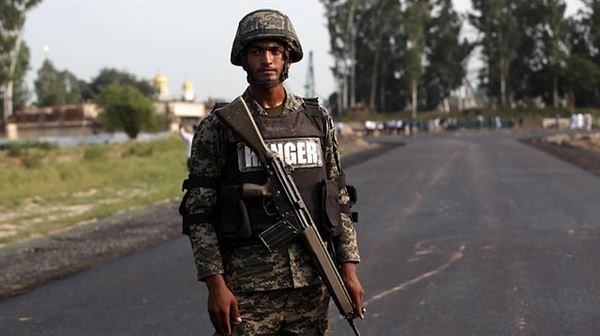India on Monday said that New Delhi is ready this week to sign an agreement with Pakistan to open a corridor easing Sikh pilgrims' access to a sacred
India on Monday said that New Delhi is ready this week to sign an agreement with Pakistan to open a corridor easing Sikh pilgrims’ access to a sacred site.
“In view of the long pending demand of the pilgrims to have visa free access to Gurudwara Kartarpur Sahib and in the interest of operationalisation of the Corridor in time before the 550th Birth Anniversary of Guru Nanak falling on 12 November 2019, Government has today conveyed that we would be ready to sign the Agreement on Kartarpur Sahib Corridor on 23 October 2019,” said an Indian Foreign Ministry statement.
But India continued to balk over a $20 per pilgrim fee proposed by Pakistan, voicing its “disappointment … that Pakistan continues to insist on the fee.
The Indian government urged Pakistan to reconsider its decision and withdraw the proposed fee.
On Sunday Pakistani Prime Minister Imran Khan also announced the opening of the Kartarpur corridor for Sikh pilgrims.
“Pakistan is all set to open its doors for Sikhs from all across the globe, as the construction work on Kartarpur project enters final stages and will be open to public on 9th November, 2019,” Khan said on Facebook.
The world’s largest gurdwara (Sikh house of worship) will be visited by Sikhs from across India and other parts of the world, he added.
He said he hoped Kartarpur will become a major religious hub for the Sikh community, and would boost the local economy.
“Religious Tourism is on the rise in Pakistan, earlier Buddhist monks visited various sites for religious rituals followed by opening of Kartarpur corridor,” he added.
The Kartarpur Sahib Temple is one of the most revered temples for the Sikh community, as the revered Baba Guru Nanak spent the last 18 years of his life there.
The distance between the temple and Gurdaspur is just three kilometers (two miles), but the closure of the Kartarpur crossing forces Sikh pilgrims from India to travel hundreds of kilometers, via Amritsar and Lahore, to reach the site.
